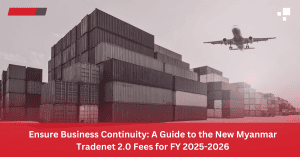Insurance is an important global service – vital to commerce and private individuals.
1.) Why is insurance important to an emerging market?
2.) How does insurance underpin market-entry and business operational risk?
3.) Why Myanmar?
4.) What does it mean for Myanmar?
1.) Why is insurance important to an emerging market?
When an economy is growing quickly, as with Myanmar, insurance services play an important role in managing risk. For companies, their shareholders will demand insurance to protect their investments. Import and export activity requires insurance. Individuals, benefiting from a booming economy, with increased spending power, should be able to obtain insurance for their homes, family, life and health. Insurance is a catalyst allowing, and protecting, further growth in the economy.
By the structure of syndication an insurance provider can spread the risk of their portfolio with syndicates and insurance companies. This level of security provides confidence that is even more important in emerging markets. The insurance structure is often a group of insurance companies who work with contracts within the group. This allows even high value items to be insured with confidence. It is important to understand the strength that this structure provides.
One of the best known is Lloyd’s of London. In fact Lloyd’s is not an insurance company but a “marketplace”, which started in 1686. Today these insurers and reinsurers sign Terms of Business Agreements (TOBAs) linking their companies. This assures the insurance user that the risk is covered. The Lloyd’s market motto is Fidentia, Latin for confidence. Authorised financial backers and syndicates provide a collective resource to cover insurance claims.
“Improving access to insurance is particularly valuable for people with low incomes, who often struggle to manage unforeseen financial shocks.” (Sigma Insurance report, part of Swiss Re Group). The report emphasises, “these people are particularly vulnerable to shocks such as illness, incapacity to work, and the effects of natural catastrophes and extreme climate events, such as droughts. For insurers, opening up a new risk pool of several million customers on the cusp of transformative growth is an attractive proposition to embrace inclusive insurance of emerging consumers. It also helps close the protection gap for a large segment of the world’s population”. There are also patterns of microinsurance emerging in many countries, specifically designed to help low income individuals and families.
Another company with a focus on emerging markets and market entry is Willis Towers Watson who conclude, “Ultimately the goal is to secure a growth path and enhanced profitability which is sustainable”.
Unlike day to day decisions for purchases, such as your weekly shopping for food or larger items, insurance needs care. You are hoping it will never be needed but you have to trust the insurance provider will cover you in case of loss. Insurance is like the oil in the engine of commerce that keeps it running. If a company or individual needs to borrow funds, the lenders will demand insurance. Insurance can calm transactions by removing risk exposure that un-protected could block a deal. Insurance allows both companies and individuals to benefit from a more stable route forward. This applies to both huge conglomerates and small companies. Insurance is the logical, sensible service to adopt.
Over the years there have been cases worldwide of catastrophes. In one incident a factory caught fire and exploded. In another, chemical leakage has contaminated water courses. In one case the company was under-insured. The damage was so great to the region, local government and citizens took the company to court and won. The court awarded damages far in excess of the insurance value the company had chosen, indeed by a factor of 100, leading to the collapse of the company, with disposal of remaining assets. Taking insurance makes sense, but so does the careful and appropriate selection of cover.
It is not in the scope of the document, but it is interesting to note the growth internationally in a pattern to conform to international solvency standards. These are designed to protect consumers, retain financial stability and build trust in insurance companies. There are also deposit insurance systems (DIS) to create confidence for depositors.
In the words of Sigma (part of Swiss Re Group), “Emerging Markets will Drive Global Insurance Growth over Next Decade. Our forecasts show that emerging Asia will lead the charge for premium growth, expanding by three times the world average over the next two years.”
2.) How does insurance underpin market-entry and business operational risk?
There are many types of insurance to cover a range of risks across a wide range of industry and businesses. Policies will state what is covered and what is not included. It all comes down to managing risk. There is:-
Operational risk – the risk of a change in asset value following losses.
Business risk – the risk that results from wrong decisions e.g. backing new products, strategies or services.
Business success is not 100 percent certain. Questions arise, such as, is our strategy correct? Entering a new region and market adds to the risk. Insuring your developments adds strength and confidence to your entire company operation, especially in the new region, assuring both customers and investors. Insurance helps companies manage their operational risks. A crisis without insurance also leads to a reputational risk for the company. Also, if you are entering a new region there are compliance risks if you do not fully understand comply with national laws and guidelines
3.) Why Myanmar?
All regions, sectors, industries, commerce, families, and individuals benefit from insurance. The World Health Organisation estimates that 100 million people a year fall into poverty due to unexpected medical costs.
The value of insurance is even greater today due to the wider range of insurance cover that is now available. In India there is even a test phase for rainfall insurance that has been provided for 600 farmers.
Myanmar has a remarkably low take up of Insurance. Most citizens in Myanmar do not use insurance services. There are approximately 55 million citizens in Myanmar. Until 2013, Myanma Insurance was the sole insurance service in Myanmar. Myanma is a state controlled service. The range of insurance had been relatively limited by global standards. The opportunities in Myanmar for insurance providers are enormous.
Now, insurance and insurance broking business is conducted through either a company incorporated in Myanmar or a company established outside Myanmar with an established place of business in Myanmar.
The huge opportunity in Myanmar is recognised by insurance companies – alongside the huge risks for companies and individuals if they continue in old patterns and do not use insurance services.
Changes in regulations in Myanmar are very significant for the insurance sector. It is widely recognised that the Insurance Sector in Myanmar needed to change, to respond to huge increases in trading and overall economic activity in Myanmar. Last year official statements stated that work was underway “to solve the problems of the insurer and the insurance companies in line with law and rules, to establish the Open Insurance Market Operation, to establish the Pure (Perfect) Competition Market, to be non-monopolistic stage, enable to operate the co-insurance by the local/foreign companies, to have heterogeneous products, to create free entry to and exit from the insurance industry and to collect the transparent and free information in Insurance Sector of Myanmar”.
Asia and the Far East has the largest potential for growth in insurance policies. Providers realise that they must grab market share, be the first entrant wherever possible. It is easier to grow client volumes in emerging markets.
Many reports echo patterns around the world where Insurance companies are strong investors in national bond markets, so this is another boost for Myanmar. Reports indicate that at present in Myanmar the insurance sector accounts for 0.07pc of GDP.
4.) What does it mean for Myanmar?
Reduced risk, more attractive environment for investors, further spurs for growth and prosperity. The global insurance industry, after years of development, is well practiced in spreading their insurance risks, so they can be sure they can reimburse the claimant and or company if a claim is submitted. For Myanmar, the exponential rise in exports and imports, the rapid rise of construction of residential and commercial sites, and growth year on year of sales and the range of products available, all means insurance is more important. Asset values rise and need to be insured.
Furthermore, changing and unpredictable weather patterns add importance to insurance, so this is a sensible practice for business and individuals – insure your trades, possessions, and also obtain the benefits of health insurance. Companies who do not offer staff benefits such as health insurance, may find that staff leave for a competitor, who does provide insurance. It is still a candidates’ market in Myanmar, with more vacancies than candidates for many roles.
The range of risks that can be covered continues to grow. In general terms, forms of insurance include:-
- General Insurance: This is any insurance policy but does not include life insurance comes under general insurance.
- Fire Insurance.
- Marine Insurance: This includes cargo insurance, hull insurance and freight insurance.
- Miscellaneous Insurance: home insurance, credit insurance, vehicle insurance. There are many other types of general insurance.
It is a sad fact that emerging countries tend to be affected by insurance gaps. There are increasing reports of natural catastrophes. This hits emerging economies and citizens. With insurance, you have the reassuring fact that help is at hand.
The MOPF’s announcement No 1/2019 officially permits companies wishing “to operate the business of insurance, underwriting agency or insurance broking with foreign investment” to open for business in the country. FocusCore opened in Myanmar to help companies become established here and our services have grown to provide a full range of corporate services. We are delighted to see this development that will be of value to existing and new companies in Myanmar. Our extensive network of contacts covers Government and Commercial Sectors, allowing us to offer you efficient and informed guidance to facilitate your profitable company operations in Myanmar. Come to Myanmar now and see how this growing market can be a positive expansive step for your company and investment.




